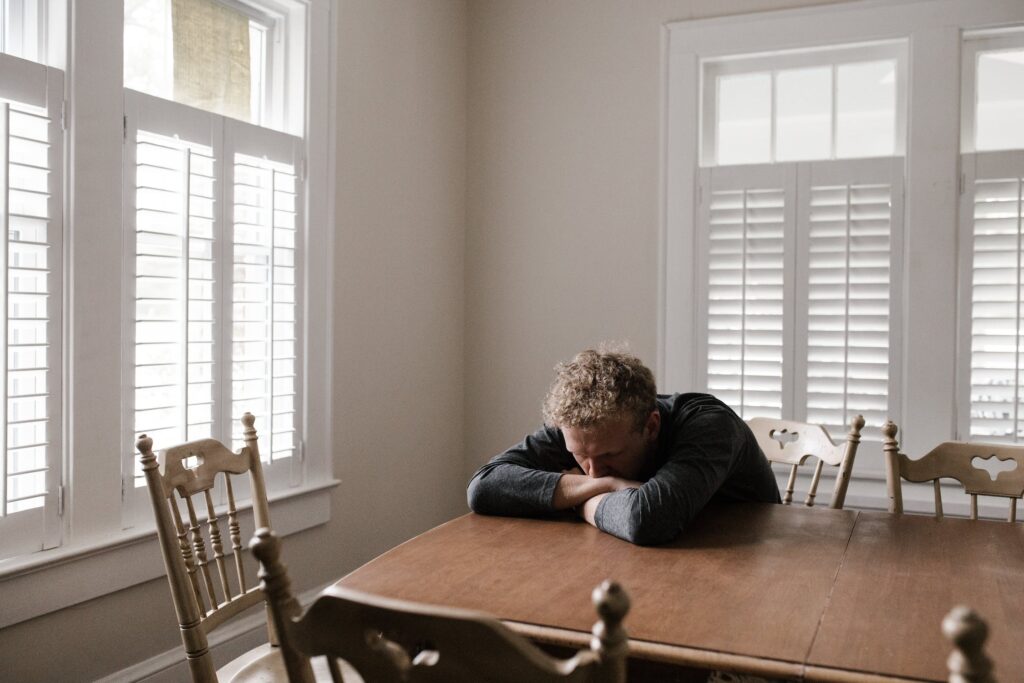Cocaine and anxiety fuel one another in a vicious cycle. The intense stimulation of cocaine releases feel-good neurotransmitters like dopamine, promising temporary relief from anxiety. However, cocaine also disrupts key emotional regulatory centers in the brain, often worsening anxiety symptoms over time and leading to dependence on the drug to self-medicate.
Up to half of cocaine users seeking treatment suffer from comorbid anxiety disorders. Breaking the cocaine-anxiety connection requires therapies that address the underlying brain imbalances perpetuating both cocaine addiction and chronic anxiety. Understanding how each disorder feeds into the other is the first step toward management.
The Relationship Between Cocaine Use and Anxiety
👩🏼⚕️
Does Cocaine Cause Anxiety? Yes, cocaine can cause or exacerbate anxiety, as well as panic attacks for some people, contributing to a complex cycle of use and mental health degradation. Long-term cocaine use restructures brain pathways regulating emotion control, leaving users prone to severe rebound anxiety and panic when withdrawing.
Cocaine Physical Effects
Cocaine triggers physical effects like increased heart rate, blood pressure, and body temperature2. These changes mirror the body’s fear response. Coming down off the high can also lead to agitation and irritability. Over time, cocaine releases stress hormones and rewires emotion-regulating brain pathways. This leads to:
- Higher general anxiety
- Excessive worry about getting more coke
- Losing control over use
- Depression, sleep problems, and worse rebound anxiety during withdrawal after addiction sets in
Through both short-term and long-term impacts on the mind and body, cocaine frequently causes anxiety issues and makes existing ones significantly worse.
How Cocaine Causes and Exacerbates Anxiety
Immediate Effects
- Physical changes that can trigger panic:
- Rising heart rate, blood pressure, temperature
- Crashing off the high, leading to agitation and crying spells
- Increased release of stress hormones:
- Cortisol, adrenaline
Long-Term Effects
- Changes to emotion and motivation pathways in the brain:
- Damage to prefrontal cortex, amygdala, and hippocampus
- 60% of heavy users develop severe mental health issues
- Worsening of depression, anxiety, psychosis
- Losing control over using coke
- Stronger cravings and impulsiveness
Get Help for Cocaine Addiction Today
Anxiety Disorder and Drug Addiction
Cocaine and anxiety truly feed one another in a vicious spiral. The stimulant promises temporary mood relief only to derail brain chemistry, spiking, panic, and uncomfortability. Quieting this storm demands therapies nurturing self-care skills alongside safe medical buffers.
- Cocaine provides a powerful high that always brutally crashes. This cycle disrupts brain chemicals critical for regulating emotions.
- Cocaine stimulant effects can directly trigger panic attacks for some. Withdrawal from long-term cocaine use leads to severe rebound anxiety and mood issues.
- Anxiety disorders like insomnia predispose to cocaine self-medication efforts. However, cocaine worsens underlying anxiety in a destructive see-saw pattern.
- This toxicity spin points to the critical need for integrated behavioral therapies and targeted medicine. Treatments aim to balance brain changes that fuel both substance abuse and anxiety.
Self-Medication and Its Pitfalls
Seeking relief from anxiety, some turn to cocaine only to have symptoms boomerang back worse. What starts as self-medication locks into a downward spiral of intensifying panic.
- Self-Medication Cycle: Individuals might use cocaine seeking an escape from anxiety, yet this approach can intensify the symptoms over time.
- Cocaine-Induced Panic Disorder: this concoction can severely impact mental health, illustrating the dire consequences of cocaine use.
Withdrawal and Recovery Challenges
Crashing after the cocaine high plunges some into months of rebound anxiety, depression, and craving the stimulant. Careful medical and therapeutic support is imperative for managing withdrawal’s peak in days while avoiding complications5.
- Cocaine Withdrawal Syndrome: Symptoms of withdrawal can severely impact mental health, potentially triggering anxiety and panic attacks. Symptoms peak within 1-3 days and persist for weeks to a month. Includes depression, fatigue, increased appetite, and cravings. Rebound anxiety and agitation are common. Insomnia and vivid nightmares occur frequently. Some experience paranoia resembling full psychosis
Cocaine-Induced Anxiety
Cocaine hijacks the brain’s mood control center. Anxiety simmers during stimulation only to later detonate into full-blown panic attacks for some.
Cocaine-induced anxiety refers to symptoms of excessive apprehension, worry, and autonomic arousal that arise during or following cocaine intoxication or withdrawal6. While cocaine acutely boosts confidence and energy as a powerful stimulant, it also disrupts key neurotransmitters involved in regulating emotions. This can lead to feelings of panic, impending doom, irritability, insomnia, muscle tension, nausea, and restless agitation both during and after cocaine exposure.
Up to 48% of individuals seeking treatment for cocaine use disorders meet diagnostic criteria for comorbid anxiety disorders like generalized anxiety or panic disorders7. This demonstrates cocaine’s tendency to cause and exacerbate anxiety through its impact on mental health.
While some attempt to self-medicate anxiety symptoms with cocaine, this often backfires by amplifying anxiety severity. Integrated treatment approaches are imperative for disrupting this dangerous bidirectional relationship.
Cocaine Withdrawal Symptoms
Mood Related
Sleep Issues
Potential Psychosis
Fatigue
Cravings
Physical Effects
Feeling tense, panicky without trigger, obsessive worrying, panic attacks, sudden episodes of racing heart, depression, overwhelming sadness and despair, no interest/pleasure in activities, emotional swings, rapid ups and downs in mood, difficulty self-regulating emotions.
Losing awareness of time, place, or person, Feeling detached from surroundings, Mind playing tricks – difficulty distinguishing reality, Intense, irrational suspiciousness, Hearing, seeing, believing things that don’t exist, If severe, hospitalization may be required for safety, Medications like antipsychotics might provide temporary relief.
Muscle weakness, tremors, or twitching, joint stiffness or pain, headaches, migraines, dizziness, loss of balance, blurred vision, rapid heartbeat, chest pain, fever, chills, night sweats, nausea, vomiting, diarrhea.
Treatment and Recovery
Detoxification
Detoxing from cocaine requires a medically-managed cushion – easing crashing neurotransmitter turbulence, absorbing emotional aftershocks, and gently ushering the nervous system back to balance.
- Medically-supervised setting
- Medications to ease withdrawal symptoms
- Round-the-clock medical/emotional support
Residential Treatment
Residential treatment centers around long-term well-being, not just sobriety – seeding neural and ego repair through round-the-clock psychotherapy, community support, medical management, and lifestyle rebuilding.
- Individual & group psychotherapy
- Psychoeducation & skills groups
- Medication management
- Nutrition & fitness planning
Specialized Treatment Modalities
Beyond basics, specialized therapies target subconscious drivers of addiction’s tractor beam — rerouting ingrained response pathways through cognitive retraining to short-circuit the Sirens’ call back.
- Cognitive Behavioral Therapy (CBT)
- Contingency management
- Exposure therapy
- Dual recovery groups
Relapse Prevention Planning
Triggers lurk sneakily, threatening arduous recovery work – relapses slide subtly, so careful self-insight plus a support lifeline can truly anchor change when old habits hook the psyche.
- Identify personal triggers
- Develop healthy coping strategies
- Recognize unconscious addiction patterns
- Emergency support contacts
Aftercare Services
Aftercare sustains the scaffolding stabilizing change – transitional housing secures recovery’s footing, outpatient therapy nurtures insights marinating, peer coaching for motivation, medications upholding brain balance.
- Sober living transition
- Outpatient therapy
- Peer recovery coaching
- Self-help meetings
- Continued medication maintenance
The optimal treatment plan integrates medical, psychological, peer, and holistic services and is tailored to each client’s needs.
🔑 Key takeaways
- Cocaine addiction and co-occurring anxiety disorders: Fuel one another in a dangerous, looped pattern only disrupted through concurrent evidence-based care.
- Cocaine increases risk for anxiety issues: Directly triggers panic attacks in some Withdrawal causes severe rebound anxiety.
- Relapse Warning Signs: Re-emerging anxiety after quitting cocaine can signal unconscious addiction cravings and quarry return to use without support.
- Emotional Control Issues: Reward and stress center changes make quitting cocaine extremely emotionally turbulent in the early days/weeks.
How We Can Help
At Cornerstone Healing Center, our dual diagnosis treatment evidence-based programs address both substance abuse and any underlying or resulting mood disorders like anxiety. Through behavioral therapy, clients build skills for managing cravings, high-risk situations, and emotional triggers. We stabilize medication needs to alleviate withdrawal and anxiety symptoms. Peer support groups provide 24/7 access and encouragement.
If you or a loved one are experiencing this, please reach out today and let us help you as much as possible! Cocaine addiction, let alone having an anxiety disorder, can be severe and is a sour mix to have together. Cornerstone Healing Center in Arizona offers specialized care when you need it most.







